Welcome to our free classical music site

Do you write about classical music? Are you a blogger? Want to team up with Classical Connect? Send us a message, let's talk!

Do you write about classical music? Are you a blogger? Want to team up with Classical Connect? Send us a message, let's talk!
This Week in Classical Music: February 13, 2023. Eight composers. This is one of those weeks when practically every day brings an interesting composer – sometimes two – to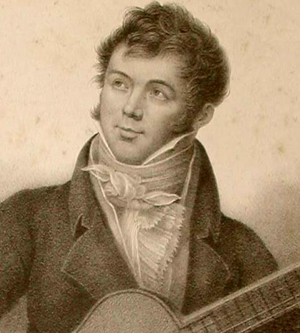 commemorate. Some of them are more interesting than others, but all are worth mentioning. So, let’s go through the list. Fernando Sor, a Spanish composer best known for his music for the guitar, was born on this day in 1778. Sor himself was a guitar virtuoso and wrote hundreds of pieces for the instrument, from easy exercises for beginners to some extremely difficult ones. Here are Sor’s Variations on a theme from Mozart’s The Magic Flute (they are from the “difficult” category). The Variations are performed by the Spanish guitarist Rafael Serralet.
commemorate. Some of them are more interesting than others, but all are worth mentioning. So, let’s go through the list. Fernando Sor, a Spanish composer best known for his music for the guitar, was born on this day in 1778. Sor himself was a guitar virtuoso and wrote hundreds of pieces for the instrument, from easy exercises for beginners to some extremely difficult ones. Here are Sor’s Variations on a theme from Mozart’s The Magic Flute (they are from the “difficult” category). The Variations are performed by the Spanish guitarist Rafael Serralet.
On the 14th of February, we have two birthdays: Francesco Cavalli, in 1602, and Alexander Dargomyzhsky, in 1813. Cavalli, a Venetian, was one of the pioneers of what was then a very new Italian art form, opera. Almost forgotten for centuries, his work has been revived in the past decades with operas staged at Glyndebourne and by small companies like Chicago’s Haymarket Theater. Here is Cavalli’s version of Ombra mai fu, from his opera Xerse. Dargomyzhsky was a Russian composer of the generation between Glinka and Mighty Five, a generation rather scant on musical talent. Two of his operas, Rusalka and The Stone Guest, which he didn’t complete (it was finished by Cui and Rimsky-Korsakov) are regularly staged in Russia. Dargomyzhsky wrote about 100 songs, some of them lovely.
On the 15th we have either one or two anniversaries. One is clear: Georges Auric, the French composer and a member of Les Six, was born on this day in Lodève, a small town not far from Montpellier (you can read more about Auric here). The second birthday is more speculative: Michael Praetorius may have been born on February 15th in 1571. A prolific and talented composer, he was 14 years older than Heinrich Schütz and one of the earliest German composers of note. Here’s our detailed entry from some years ago.
Two composers, the Italian Arcangelo Corelli, and the Belgian, Henri Vieuxtemps, were born on the 17th of February, the former in 1653, and the latter in 1820. Even though their music could not be more different (one was a Romantic, while the other worked during the height of the Baroque era), their lives present many similarities. Both were virtuoso violinists and created schools of violin playing. And both had fine violins: about Corelli’s instruments we know only indirectly as it is said that his only indulgence was buying art and fine violins, whereas Vieuxtemps played what is now considered one of the greatest instruments ever made, the Vieuxtemps Guarneri del Gesù. In the 20th century, this instrument was played by Yehudi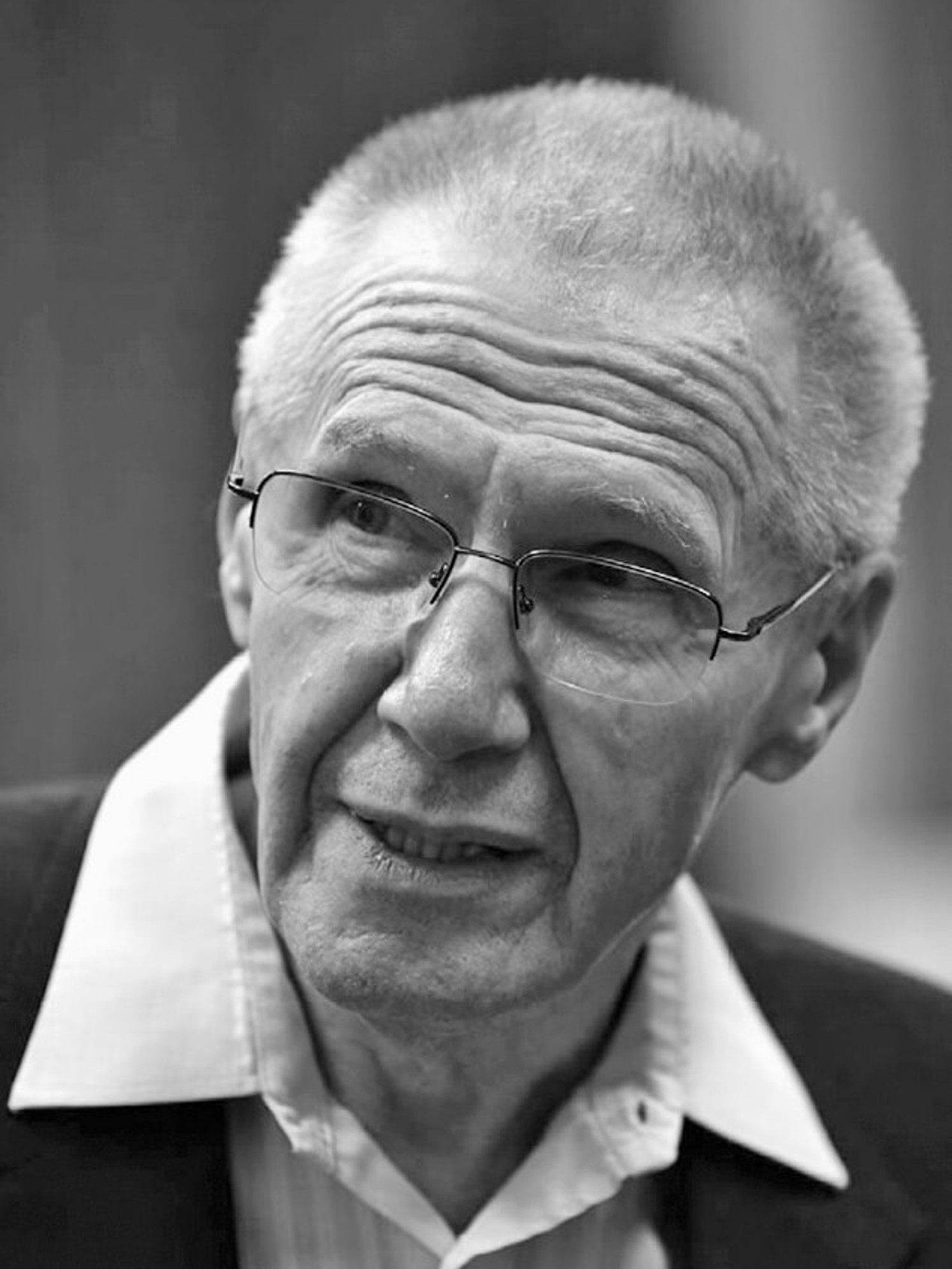 Menuhin, Itzhak Perlman, and Pinchas Zukerman. The violin is in perfect condition, and in 2013 the Economist magazine estimated its price to exceed $16 million. We can safely assume that today it’s much higher.
Menuhin, Itzhak Perlman, and Pinchas Zukerman. The violin is in perfect condition, and in 2013 the Economist magazine estimated its price to exceed $16 million. We can safely assume that today it’s much higher.
Luigi Boccherini was born on the 19th of the month, in 1743. And last but not least, on that day György Kurtág will turn 97! He’s one of the most interesting (and widely recognized) contemporary composers. Here, from 1988, is his ...quasi una fantasia… for the piano and orchestral ensemble. This piece comes from the time when Kurtág was interested in the special effects of sound, placing instruments in different parts of the hall and on different levels. And here is his early set called Eight Piano Pieces, op. 3 (all eight run less than seven minutes). It’s performed by the pianist I-Ting Wen.Permalink
This Week in Classical Music: February 6, 2023. Berg, Arrau and more. It so happened that for the last month, we’ve been preoccupied with Austro-German composers, first with the mostly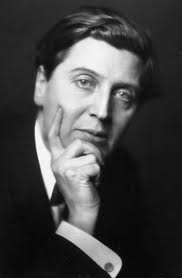 Jewish, and now mostly forgotten, composers who flourished early in the 20th century, then with Mozart and Quantz. This week brings another name, which would firmly fit into the same category – that of Alban Berg, who was born in Vienna on February 9th of 1885. Fortunately, we’ve written about Berg many times, so, in addition to the recent posts, we can refer you, for example to theseentries. In the meantime, we’ll turn to performers whom we’ve neglected in our recent posts. Arthur Rubinstein and John Ogdon were born in late January, the former on the 28th in the year 1887, and the latter on the 27th, exactly 50 years later, in 1937. Rubinstein lived a wonderfully long life, almost 96 years, and performed well into his 80s (he gave his last concert in London in 1975, when he was 89). On the other hand, Ogdon’s career was brief: at the age of 36 he experienced a mental breakdown, and from that time till his death in 1989 at the age of 52, he gave just a few concerts.
Jewish, and now mostly forgotten, composers who flourished early in the 20th century, then with Mozart and Quantz. This week brings another name, which would firmly fit into the same category – that of Alban Berg, who was born in Vienna on February 9th of 1885. Fortunately, we’ve written about Berg many times, so, in addition to the recent posts, we can refer you, for example to theseentries. In the meantime, we’ll turn to performers whom we’ve neglected in our recent posts. Arthur Rubinstein and John Ogdon were born in late January, the former on the 28th in the year 1887, and the latter on the 27th, exactly 50 years later, in 1937. Rubinstein lived a wonderfully long life, almost 96 years, and performed well into his 80s (he gave his last concert in London in 1975, when he was 89). On the other hand, Ogdon’s career was brief: at the age of 36 he experienced a mental breakdown, and from that time till his death in 1989 at the age of 52, he gave just a few concerts.
Two wonderful cellists were also born in late January: Jacqueline du Pré, on the 26th in 1945, and Lynn Harrell, on the 30th in 1944. Here we have a similar story: Harrell performed till the ripe age of 76 (he died, suddenly, in 2020). The du Pré tragedy is widely known, it was portrayed in books and film: a tremendously talented musician, she was struck by multiple sclerosis in 1971, when she was only 26 (she died on 19th of October 1987 at the age of 42). Let’s listen to both cellists in the same Cello concerto by Antonin Dvořák. Here Jacqueline du Pré performs the first movement of the concerto. This recording was made live in Stockholm in 1967 with the Swedish Radio Symphony Orchestra, Sergiu Celibidache conducting. And here Lynn Harrell plays the second movement. This recording was made in 1982 in London with Vladimir Ashkenazy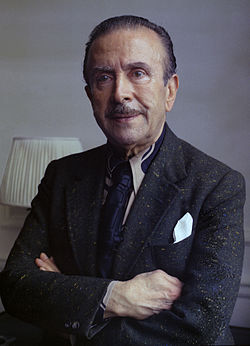 conducting the Philharmonia Orchestra.
conducting the Philharmonia Orchestra.
This week we commemorate the anniversary of the great Chilean pianist Claudio Arrau, who was born on this day in 1903. A child prodigy, he gave his first public concert at the age of five. At the age of 11, he played all of Liszt’s Transcendental Etudes; that was also the year when he gave his first concert in Berlin, where he would live and teach from 1924 to 1940. In 1935 he gave 12 concerts playing all of Bach’s keyboard compositions. In 1941 he settled in New York. He played several complete cycles of Beethoven’s sonatas, both in the US and in Europe, and continued to perform into his 80s. Arrau had an enormous repertoire. It was said that he could play 76 different recitals without repeating a single piece, not counting the piano concertos. We can think of only Sviatoslav Richter having a broader range. Considering that much of Arrau’s repertoire was recorded, it’s difficult to pick one piece to demonstrate his talent. So, we’ll give you two Beethoven sonatas: first, Piano Sonata No. 21 "Waldstein" in C major, op. 53, recorded in 1963, and then, Piano Sonata No. 17 “Tempest” in D minor, Op. 31, No. 2, recorded in 1965. The tempos are slow but the results are profound.
PermalinkThis Week in Classical Music: January 30, 2023. Quantz, not an obvious choice. Two - maybe three great composers were born this week and, in addition to that, several more of the lower rung: Franz Schubert, on January 31st of 1797, Felix Mendelssohn, on February 3rd of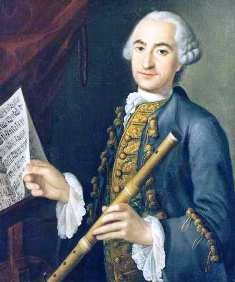 1809, and, possibly, Giovanni Pierluigi da Palestrina, on February 3rd of 1525, although the latter is far from certain. Of the “lesser ones,” Alessandro Marcello, the Italian composer who wrote the Oboe Concerto which Bach transformed into the famous concerto for the keyboard (D minor, BWV 974), was born in Venice on February 1st of 1673. And then there was Johann Joachim Quantz. What caught our eye (and ear) was not as much his music but his patron. Just the last week we wrote about Mozart and Emperor Joseph II, Mozart’s most important benefactor. Joseph, one of the enlightened monarchs of the 18th century, was very musical: he played the keyboard (we know that not just from the movie Amadeus, where he’s presented playing very poorly, almost comically, but also from paintings in which he’s portrayed sitting by the instrument with scores around). He also played the violin and cello and, according to his contemporaries, sang well. Joseph supported the creation of the German-language opera (what was then called “National Singspiel") and while he preferred the lighter opera buffa to opera seria, he commissioned Mozart for two operas: The Abduction from the Seraglio and The Impresario. Quantz’s patron, on the other hand, was Joseph’s contemporary and rival, the King of Prussia Frederick II the Great. Frederick was involved with music even more so than Joseph. In his youth, music was his main interest, much more than military affairs which were supposed to be most important to the young king. He played the flute and was a prolific composer, writing more than 120 flute sonatas. He supported many composers, for example, C.P.E. Bach and Franz Benda. In 1747 Frederick met Johann Sebastian Bach, after which Bach used a tune composed by the emperor as the theme for his collection of keyboard pieces called The Musical Offering. But compared to the other composers, Quantz spent more time at Frederick’s court than anybody else.
1809, and, possibly, Giovanni Pierluigi da Palestrina, on February 3rd of 1525, although the latter is far from certain. Of the “lesser ones,” Alessandro Marcello, the Italian composer who wrote the Oboe Concerto which Bach transformed into the famous concerto for the keyboard (D minor, BWV 974), was born in Venice on February 1st of 1673. And then there was Johann Joachim Quantz. What caught our eye (and ear) was not as much his music but his patron. Just the last week we wrote about Mozart and Emperor Joseph II, Mozart’s most important benefactor. Joseph, one of the enlightened monarchs of the 18th century, was very musical: he played the keyboard (we know that not just from the movie Amadeus, where he’s presented playing very poorly, almost comically, but also from paintings in which he’s portrayed sitting by the instrument with scores around). He also played the violin and cello and, according to his contemporaries, sang well. Joseph supported the creation of the German-language opera (what was then called “National Singspiel") and while he preferred the lighter opera buffa to opera seria, he commissioned Mozart for two operas: The Abduction from the Seraglio and The Impresario. Quantz’s patron, on the other hand, was Joseph’s contemporary and rival, the King of Prussia Frederick II the Great. Frederick was involved with music even more so than Joseph. In his youth, music was his main interest, much more than military affairs which were supposed to be most important to the young king. He played the flute and was a prolific composer, writing more than 120 flute sonatas. He supported many composers, for example, C.P.E. Bach and Franz Benda. In 1747 Frederick met Johann Sebastian Bach, after which Bach used a tune composed by the emperor as the theme for his collection of keyboard pieces called The Musical Offering. But compared to the other composers, Quantz spent more time at Frederick’s court than anybody else.
Johann Joachim Qauntz was born on January 30th of 1697 near Göttingen. He studied music as a boy and eventually became a virtuoso flutist. In his early 20s, he traveled Europe, meeting Alessandro Scarlatti in Naples and Handel in London (Handel recommended Quantz to stay there, advice he didn’t take). In 1728, in Dresden, Quantz met the young Frederick, then still the Crown Prince and they played music together. Soon after, though, Quantz settled in Dresden at the court of August II, the Elector of Saxony, and stayed there for years. In 1740, after his father’s death, Frederick, now King of Prussia, invited Quantz to come to Berlin. Quantz accepted; his position was that of a composer, flute teacher, and flute maker. He stayed at the court till his death in 1773.
Most of Quantz’s music is for the flute, his patron’s favorite instrument. He wrote around 200 sonatas and 300 concertos for it. We’ll listen to several movements from Quantz’s concertos. Here’s the 1st movement from his Flute Concerto in G minor (QV 5:196); here -- the 2nd movement for the Flute Concerto in G minor; here – the 3rd (final) movement from the Flute Concerto in A minor (QV 5:236); and here – the 1st movement from Concerto for Two Flutes (QV 6:8a). Click on the recordings’ links for details on the performances. We think the music is nice and not worse than, say, Gemignani’s music for the violin, which is much better known.Permalink
This Week in Classical Music: January 23, 2023. Mozart. For the last couple of weeks, we’ve been involved with the Jewish composers from Austria-Hungary and Germany, their lives during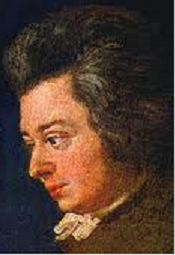 the flourishing of the Jewish culture at the end of the 19th and the first third of the 20th centuries, despite the underlying societal antisemitism, and how it all ended with the arrival of the Nazis. This week we’re in the same place geographically but centuries apart: Wolfgang Amadeus Mozart was born on January 27th of 1756 in Salzburg. We never thought of it till we engaged with the Austrian music after Mahler, but it seems that there were not that many great Austrian composers before Mozart, which seems rather strange. Of course, there was Haydn, Mozart’s direct predecessor, but otherwise, the music in Vienna was mostly Italian and German. We can’t think of any significant Austrian composers of the Baroque era other than Heinrich Ignaz Biber, and in the Classical 18th century there was the Bohemian-born Johann Stamitz and his sons, but they spent most of their lives in Mannheim, Germany. Carl Ditters von Dittersdorf had a funny-sounding name and was a friend of both Haydn and Mozart, but his music is mostly forgotten these days, though his oboe and double bass (yes, double bass!) concertos are not without interest. The Habsburgs, the Austrian family of the emperors of the Holy Roman Empire who ruled from Vienna for centuries, were especially partial to Italian music. There was not a single Austrian-born Kapellmeister till Mozart’s time: in 1787, when his genius was evident to everybody, Emperor Joseph II appointed Mozart Kammercompositeur (Chamber composer), while Antonio Salieri continued to be the more senior Kapellmeister.
the flourishing of the Jewish culture at the end of the 19th and the first third of the 20th centuries, despite the underlying societal antisemitism, and how it all ended with the arrival of the Nazis. This week we’re in the same place geographically but centuries apart: Wolfgang Amadeus Mozart was born on January 27th of 1756 in Salzburg. We never thought of it till we engaged with the Austrian music after Mahler, but it seems that there were not that many great Austrian composers before Mozart, which seems rather strange. Of course, there was Haydn, Mozart’s direct predecessor, but otherwise, the music in Vienna was mostly Italian and German. We can’t think of any significant Austrian composers of the Baroque era other than Heinrich Ignaz Biber, and in the Classical 18th century there was the Bohemian-born Johann Stamitz and his sons, but they spent most of their lives in Mannheim, Germany. Carl Ditters von Dittersdorf had a funny-sounding name and was a friend of both Haydn and Mozart, but his music is mostly forgotten these days, though his oboe and double bass (yes, double bass!) concertos are not without interest. The Habsburgs, the Austrian family of the emperors of the Holy Roman Empire who ruled from Vienna for centuries, were especially partial to Italian music. There was not a single Austrian-born Kapellmeister till Mozart’s time: in 1787, when his genius was evident to everybody, Emperor Joseph II appointed Mozart Kammercompositeur (Chamber composer), while Antonio Salieri continued to be the more senior Kapellmeister.
But back to Mozart’s music. We have hundreds of his pieces in our library, but not, until now, the Piano Concerto no. 22, and we’re glad to rectify this omission. The concerto was composed in 1785. This was a good period In Mozart’s life: he was happily married; he was friends with Haydn and played quartets with him (and Dittersdorf); he composed and performed several piano concertos and was paid handsomely for it; he moved to a more expensive apartment and bought a fine pianoforte for himself. It was also the time when he became a Freemason. The 3rd movement, Allegro, of the concerto was used by Milos Forman in his wonderful film Amadeus. There it was performed (brilliantly) by Ivan Moravec, with The Academy of St. Martin-in-the-Fields conducted by Neville Marriner. You can listen to it here in the performance by Murray Perahia and the English Chamber Orchestra. Mr. Perahia conducts from the keyboard. The cadenza at the end of the first movement is his, after Johann Hummel, and the one at the end of the 3rd movement is by Hummel.Permalink
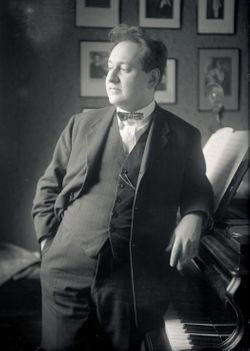 Finally, probably the most famous of the three, Erich Wolfgang Korngold. Even though he’s better known than many of his contemporaries, he also suffered greatly from Nazism. A child prodigy and the most famous composer of the pre-1933 Austro-German music world, he’s now mostly remembered for the music he wrote for Hollywood films, creating the so-called “Hollywood sound.” During the 20 years leading to the Nazi takeover, the German-speaking world was mad about operas and the young Korngold was at the top of the field. Operas by Zemlinksy, Schreker, Wellesz, Krenek’s Jonny spielt auf, and d’Albert’s Tiefland were staged hundreds of times a year all across Germany. Korngold’s Die tote Stadt, written when the composer was 23, was the most successful opera of its time. Following his earlier successes, Die tote Stadt was so anticipated that it had two simultaneous premieres, one in Hamburg and another in Cologne, where Otto Klemperer was the conductor. Here is Elisabeth Schwarzkopf singing the aria Glück das mir verb lie (Happiness that remained) from Die tote Stadt. Hamburg Rundfunkorchester is conducted by Wilhelm Schüchter. And here Renée Fleming is doing at least as good a job in the aria Ich ging zu ihm (I went to him) from Das Wunder der Heliane, from 1927, which Korngold considered his best composition. The BBC Philharmonic Orchestra is conducted by Gianandrea Noseda.Permalink
Finally, probably the most famous of the three, Erich Wolfgang Korngold. Even though he’s better known than many of his contemporaries, he also suffered greatly from Nazism. A child prodigy and the most famous composer of the pre-1933 Austro-German music world, he’s now mostly remembered for the music he wrote for Hollywood films, creating the so-called “Hollywood sound.” During the 20 years leading to the Nazi takeover, the German-speaking world was mad about operas and the young Korngold was at the top of the field. Operas by Zemlinksy, Schreker, Wellesz, Krenek’s Jonny spielt auf, and d’Albert’s Tiefland were staged hundreds of times a year all across Germany. Korngold’s Die tote Stadt, written when the composer was 23, was the most successful opera of its time. Following his earlier successes, Die tote Stadt was so anticipated that it had two simultaneous premieres, one in Hamburg and another in Cologne, where Otto Klemperer was the conductor. Here is Elisabeth Schwarzkopf singing the aria Glück das mir verb lie (Happiness that remained) from Die tote Stadt. Hamburg Rundfunkorchester is conducted by Wilhelm Schüchter. And here Renée Fleming is doing at least as good a job in the aria Ich ging zu ihm (I went to him) from Das Wunder der Heliane, from 1927, which Korngold considered his best composition. The BBC Philharmonic Orchestra is conducted by Gianandrea Noseda.Permalink
This Week in Classical Music: January 16, 2023. German and Austrian (Jewish) Music from Mahler to 1933, Part II. In our previous post, we promised to play some music of the Austrian-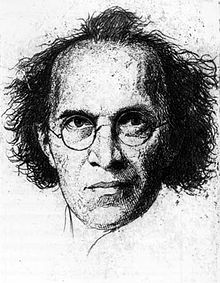 German, mostly Jewish composers whose careers flourished during the first third of the 20th century and then were completely upended by the Nazis. There were nine of them, not counting Mahler himself, and we selected three for this entry: Franz Schreker, Egon Wellesz, and Erich Wolfgang Korngold. All three, while modern in the musical idiom, didn’t accept Schoenberg’s atonality and wrote in a somewhat flowery, Romantic style. We’ll start with two excerpts from Schreker’s opera Der ferne Klang, which premiered in Frankfurt in 1912. This was Schreker’s breakthrough opera, staged in Germany hundreds of times. Schreker’s popularity waned in the mid-20s, as new operas in the zeitoper style, an angular German version of Italian verismo, became fashionable. Still, he was a highly esteemed composer and teacher when the Nazis came to power in 1933. Then, practically overnight, his music was banned, and he was dismissed from the Prussian Academy of Arts. Without means to support himself (his greatest triumphs happened during the period of hyperinflation), he suffered a stroke in December of 1933 and died in March of 1934, two days before his 56th birthday.
German, mostly Jewish composers whose careers flourished during the first third of the 20th century and then were completely upended by the Nazis. There were nine of them, not counting Mahler himself, and we selected three for this entry: Franz Schreker, Egon Wellesz, and Erich Wolfgang Korngold. All three, while modern in the musical idiom, didn’t accept Schoenberg’s atonality and wrote in a somewhat flowery, Romantic style. We’ll start with two excerpts from Schreker’s opera Der ferne Klang, which premiered in Frankfurt in 1912. This was Schreker’s breakthrough opera, staged in Germany hundreds of times. Schreker’s popularity waned in the mid-20s, as new operas in the zeitoper style, an angular German version of Italian verismo, became fashionable. Still, he was a highly esteemed composer and teacher when the Nazis came to power in 1933. Then, practically overnight, his music was banned, and he was dismissed from the Prussian Academy of Arts. Without means to support himself (his greatest triumphs happened during the period of hyperinflation), he suffered a stroke in December of 1933 and died in March of 1934, two days before his 56th birthday. 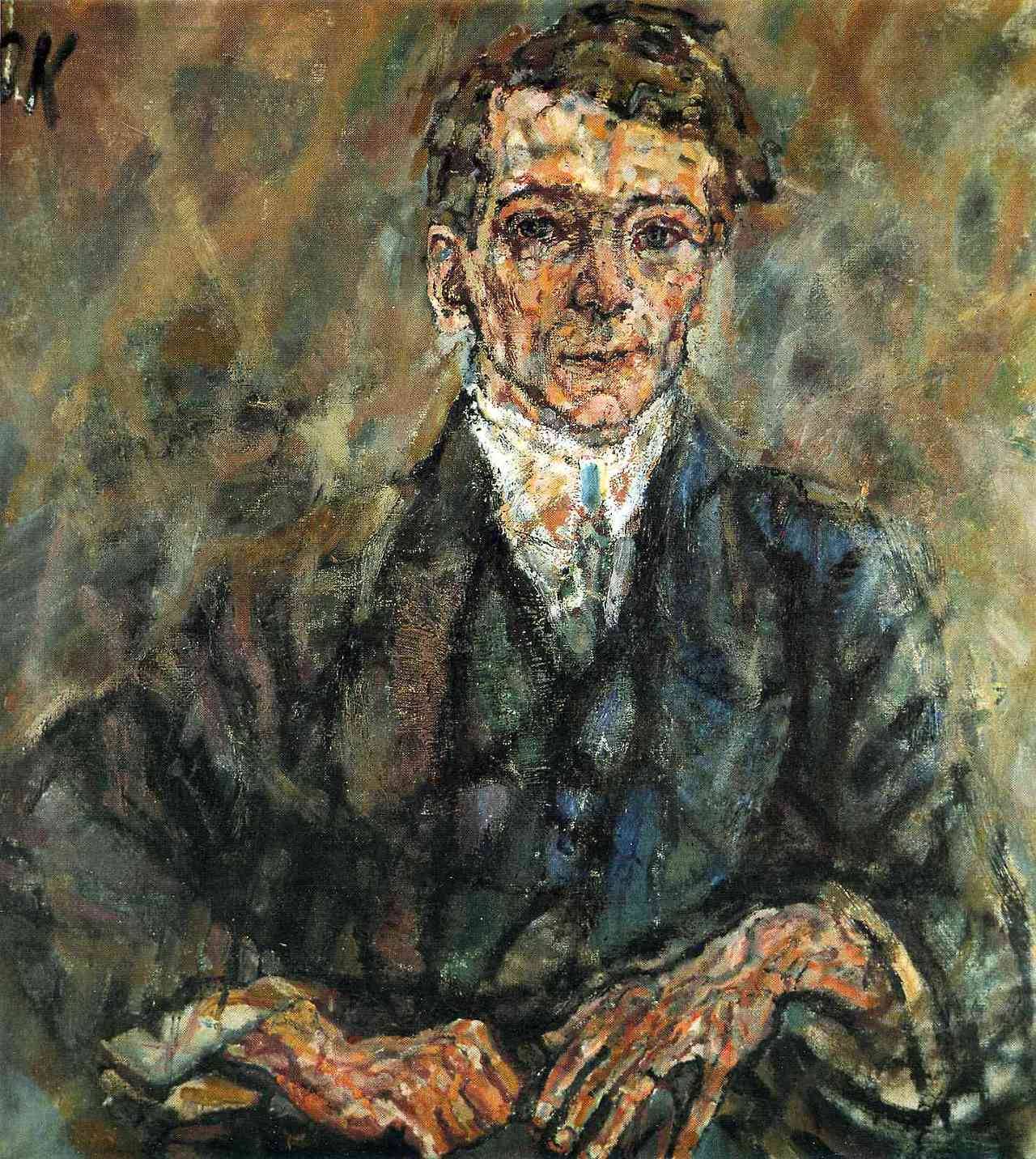 Michael Haas rightly calls him the first victim of Nazism. Here’s Nachtstück, an interlude from Act 3 of Der ferne Klang. It’s performed by the Royal Swedish Orchestra under the direction of Lawrence Renes. And here is the final scene, Grete! Horst Du den Ton? (Do you hear the sound?) with the tenor Thomas Moser and soprano Gabriele Schnaut. The scream at the end reminds one of the final moments of Puccini’s Tosca, written 12 years earlier. Berlin Radio Symphony Orchestra is conducted by Gerd Albrecht.
Michael Haas rightly calls him the first victim of Nazism. Here’s Nachtstück, an interlude from Act 3 of Der ferne Klang. It’s performed by the Royal Swedish Orchestra under the direction of Lawrence Renes. And here is the final scene, Grete! Horst Du den Ton? (Do you hear the sound?) with the tenor Thomas Moser and soprano Gabriele Schnaut. The scream at the end reminds one of the final moments of Puccini’s Tosca, written 12 years earlier. Berlin Radio Symphony Orchestra is conducted by Gerd Albrecht.
Next, we’ll turn to Egon Wellesz, whose life, fortunately, was not as tragic as that of many of his Jewish contemporaries: he stayed in Vienna till Anschluss and then emigrated to England, where his life wasn’t easy (he was interned for a while as an “enemy alien”) but where he eventually built a career as an expert in Byzantine music and teacher. However, he was forgotten as a composer, which is a pity, as you can judge for yourself. Here’s Wellesz’s Idyllen, op.21, five short pieces for piano in the impressionistic style, written after poems by Stefan George. It’s performed by Margarete Babinsky. And here is his String Quartet no. 6, op.64, composed in England in 1947. The first several bars remind us of the famous 4th movement of Shostakovich’s Quartet no. 8 from 1960. It’s performed by Artis-Quartett Wien.
This Week in Classical Music: January 9, 2023. German and Austrian (Jewish) Music from Mahler to 1933. Since about a month ago, when we published an entry dedicated to the Austrian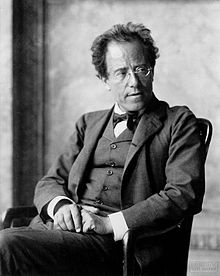 Jewish composer Ernst Toch, we’ve been preoccupied with that tragic but remarkably fecund period of European art of the period. We must give credit to Michael Haas, whose book Forbidden Music and his eponymous blog have guided us in our search. Haas brilliantly explores the history of Austro-Hungarian and German Jewry starting with the Congress of Vienna in 1814 through the midcentury and Wagner’s antisemitism; the Austrian Constitution of 1867 proclaimed by the emperor Franz Joseph I, which emancipated the Jews of much of the Empire and helped to liberate the talents of the country’s Jewry, especially in arts; the underlying antisemitism of the society and first antisemitic political movements, relatively innocuous back then but eventually murderous and later catastrophic;
Jewish composer Ernst Toch, we’ve been preoccupied with that tragic but remarkably fecund period of European art of the period. We must give credit to Michael Haas, whose book Forbidden Music and his eponymous blog have guided us in our search. Haas brilliantly explores the history of Austro-Hungarian and German Jewry starting with the Congress of Vienna in 1814 through the midcentury and Wagner’s antisemitism; the Austrian Constitution of 1867 proclaimed by the emperor Franz Joseph I, which emancipated the Jews of much of the Empire and helped to liberate the talents of the country’s Jewry, especially in arts; the underlying antisemitism of the society and first antisemitic political movements, relatively innocuous back then but eventually murderous and later catastrophic;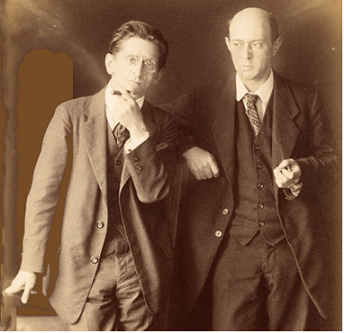 the problems of the German minority of the Empire, and so much more.
the problems of the German minority of the Empire, and so much more.
For the Jews, the way to become accepted in society, formally free but practically still antisemitic, was through the arts, especially music. The flourishing that followed was quite unprecedented. We’re not even talking about the performing artists or conducting, where Jewish musicians came to occupy very prominent positions – we’re focusing on the composers who changed the music scene of the German-speaking world. Gustav Mahler, born in 1860, was the oldest of this group. Alexander von Zemlinsky, who fell in love with Alma Schindler before Mahler convinced her to marry him, was 11 years younger but still one of the most celebrated composers of the early 20th century, right there after Mahler and Richard Strauss (Strauss, born in 1864, wasn’t Jewish). Arnold Schoenberg, who changed the way we listen to music and even what we consider music, was born in 1874 (you may want to check our three entries here, here, and here). Franz Schreker, for a while more famous than all of the above, was the most popular opera composer in Austria and Germany. He was born in 1878.
group. Alexander von Zemlinsky, who fell in love with Alma Schindler before Mahler convinced her to marry him, was 11 years younger but still one of the most celebrated composers of the early 20th century, right there after Mahler and Richard Strauss (Strauss, born in 1864, wasn’t Jewish). Arnold Schoenberg, who changed the way we listen to music and even what we consider music, was born in 1874 (you may want to check our three entries here, here, and here). Franz Schreker, for a while more famous than all of the above, was the most popular opera composer in Austria and Germany. He was born in 1878.
Then there were three composers who are practically forgotten these days. Who remembers Karl Weigl, even though his music was praised by Mahler, Schoenberg, and Strauss? Weigl was born in 1881. Egon Wellesz, born in 1885, was one of the most successful pupils of Arnold Schoenberg: his music was published by Universal Edition, the most prestigious music publishing house in Europe, before Berg’s or Webern’s. He was also a noted scholar of Byzantine music. Ernst Toch, to whom we dedicated a recent entry, was born in 1887; his music was admired by Mahler and widely performed, till the Nazis banned it after assuming power.
Erich Wolfgang Korngold, an amazing child prodigy (many compared him to Mozart), was born in 1897 and wrote a ballet (Der Schneemann) at the age of 11, before the much older Zemlinksy composed the bulk of his work. Korngold became one of the most celebrated (and rich) composers of the time. Hanns Eisler, also Schoenberg’s student, was born in 1898 and became famous for his communist sympathies and for composing the national hymn of the German Democratic Republic. And Berthold Goldschmidt, the youngest of this group, was born in 1903. Franz Schreker’s student and a successful composer, he was considered by many to be the brightest star of his generation.
By 1933, when the Nazis took power, Mahler had been dead for 22 years, but everybody else’s careers and personal lives were brutally upended. Their music was declared “degenerate,” and their livelihoods destroyed. Franz Schreker suffered a stroke in December of 1933 and died three months later. Everybody else was forced to emigrate. Most of them never regained the fame they had in Europe. We’ll talk about the aftermath of the Nazi takeover and listen to some of the music in our next post.Permalink